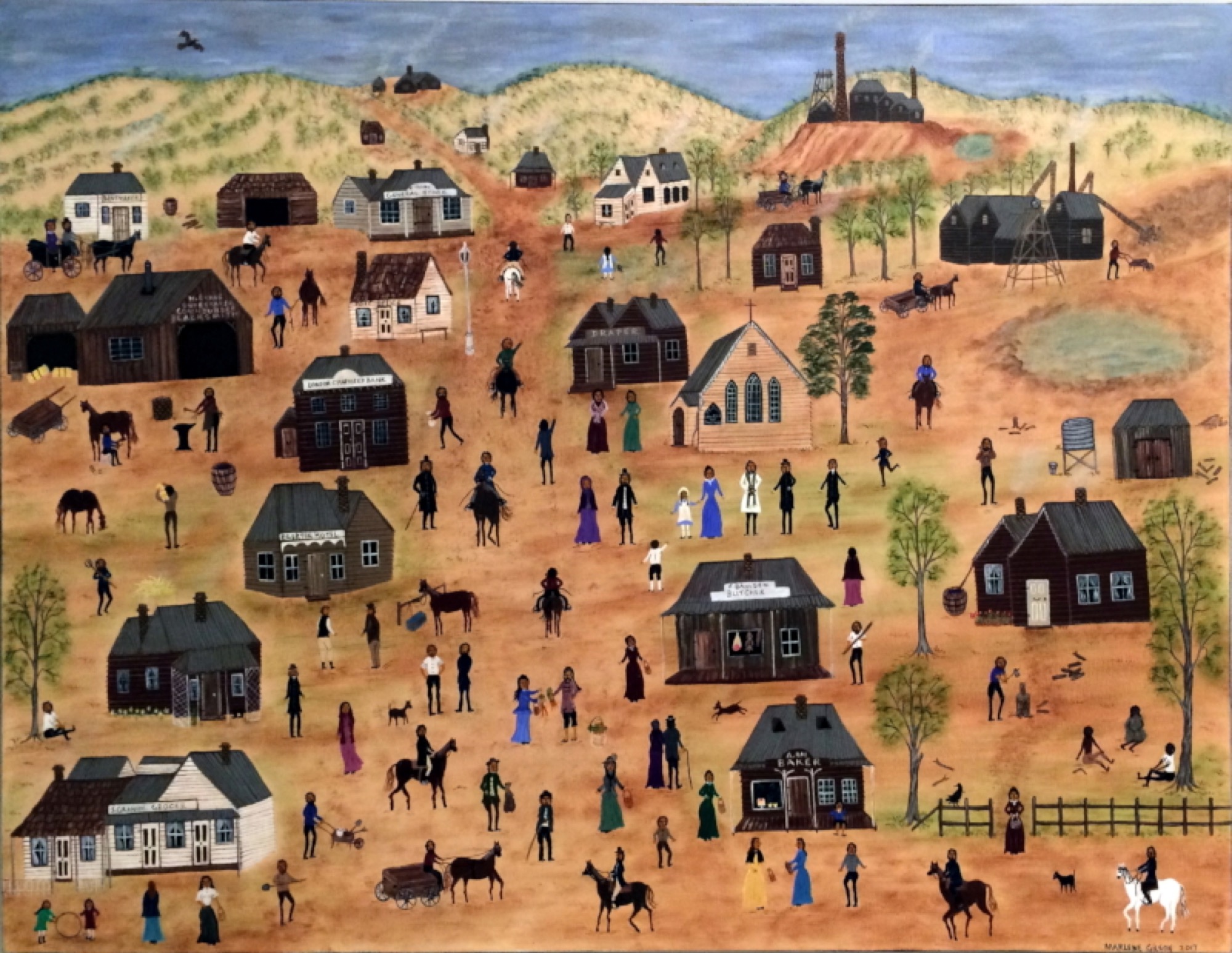
At first impression, the current exhibition of paintings by Wathaurung Elder Aunty Marlene Gilson at the Art Gallery of Ballarat is thoroughly charming. Gilson offers an Indigenous perspective on Australian history, using a delicate naïve style that evokes directness and simplicity. On reflection, I found that Gilson's history paintings are more complex than their picture-book appearance suggests. Originally installed as part of the Biennale of Australian Art, the exhibition has enjoyed an extended run as a stand-alone show.
Unlike many artists who paint in a naïve style—in Australia, big names like Jenny Watson or Ian Abdulla, or younger artists like Chayni Henry come to mind—Gilson's works are not autobiographical. Since she began exhibiting in 2012, her exclusive focus has been Australia's early colonial histories, with a particular emphasis on the goldfields of Wathaurung Country. Gilson paints an expanded view of recorded settler histories, which pointedly includes those who were present but are underacknowledged in the records, such as Indigenous communities and Chinese immigrants. In Chinese on the Goldfields, 2018, for example, Gilson's great, great-grandfather, the legendary King Billy (recognisable by his trademark metal breastplate) stands beside John Alloo's Chinese Restaurant, which doubles as a booking office for coaches to Melbourne and Geelong. The painting depicts a hive of industrious activity: an Indigenous woman stitching possum-skin rugs fields interest from a white customer, Chinese market gardeners toil over neat-as-a-pin gardens and sell their produce, immigrant miners sit outside the post office and read letters from home. Gilson's point is clear: Australian society during the early colonial period was a multi-cultural affair, its diversity stitched together by both social and economic connections.